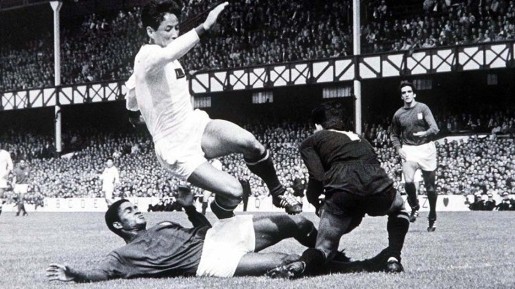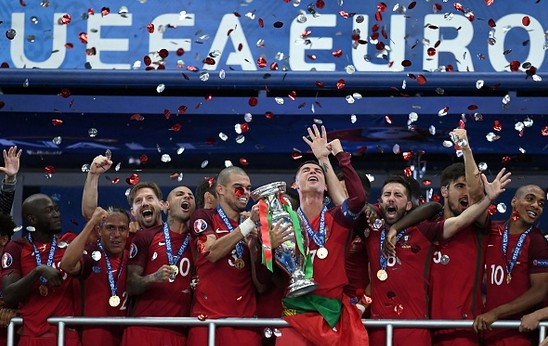 Football is a sport that enjoys massive support not only in India but worldwide. Betting on football has also grown, with sites like Parimatch offering a great fan experience. In Portugal, football is huge, but it has developed gradually. Portugal’s football federation was created in 1914. The federation’s name was “União Portuguesa de Futebol” and the organisation’s primary purpose was to develop national events. The “Campeonato de Portugal” was founded the following year, which kicked things off on the proper path.
Football is a sport that enjoys massive support not only in India but worldwide. Betting on football has also grown, with sites like Parimatch offering a great fan experience. In Portugal, football is huge, but it has developed gradually. Portugal’s football federation was created in 1914. The federation’s name was “União Portuguesa de Futebol” and the organisation’s primary purpose was to develop national events. The “Campeonato de Portugal” was founded the following year, which kicked things off on the proper path.
Younger football fans may be surprised to discover that Portugal was not always a powerhouse in the game, given their recent years.
Things began to improve in the mid-90s with the arrival of the golden generation. From that point forward, the team made consistent growth, concluding with their victory in the Euro 2016 final.
Early History
Portugal was selected for the World Cup initially in 1934. However, they were eliminated in the qualification stage by the Spanish team. They lost twice in that competition, both in the late rounds.
The first was a 9-0 loss to Madrid, while the second was a 2-1 loss to Lisbon. In the 1938 FIFA World Cup, Portugal’s national football team was defeated by Switzerland in the qualification stage. In Milan, they were defeated 2-1 by the Swiss team.
Through the 1950s, Portugal continued to compete in World Cup qualifiers without much success. In the 1950 qualifiers, they were pitted against old rivals Spain, who were defeated 5-1 in Madrid. They fared poorly four years later, falling a humbling 9-1 to Austria.
The team won their first match in the 1958 qualifiers, although a setback to Northern Ireland crushed their World Cup aspirations. Portugal has been able to compete in European Championships qualifying since 1960. They failed to qualify for the final tournament in their first two attempts, losing to Yugoslavia and Bulgaria in 1960 and 1964. Meanwhile, they came second in their group in World Cup qualifiers played in 1962, behind England.
Portugal lost both of their subsequent away matches after a decisive Luxembourg conquest, beating them 6-0 and drawing 1-1 with England.
The Glory Elevator
 Clubs and national teams gained strength due to the professionalization that began with the emergence of coaches with new game ideologies, such as Otto Glória and Fernando Riera culminating in Benfica’s conquest of the European Cup in two consecutive years, that is, 1961 and 1962.
Clubs and national teams gained strength due to the professionalization that began with the emergence of coaches with new game ideologies, such as Otto Glória and Fernando Riera culminating in Benfica’s conquest of the European Cup in two consecutive years, that is, 1961 and 1962.
On the other side of the second circular, the “cantinho do Morais” saw Sporting raise the Cup Winners’ Cup in 1964.
Two years later, this destined-for-greatness generation came together in the same conditions to assure the team’s first World Cup qualification, a competition in which they finished third on the podium.
Although neither clubs nor national teams achieved notable success on the international stage, there were several bright moments in this beachside period.
Triumph mode
In 1984, the team won their first European Championship game after a thrilling 1-0 triumph over Russia. Portugal secured the first spot in its group stage with the three points. Their outstanding form continued throughout the competition as they advanced to the knockout phase, following a thrilling victory over Romania. France defeated them in the semi-final, with Platini striking the game-winning goal in extra time. Portugal qualified for the 1986 World Cup after a 20-year wait and four failed bids. The stakes were enormous, primarily after they had defeated West Germany on their route to the World Cup. Portugal started well, with an encouraging 1-0 victory over England. But the Seleção lost their final two group games and were eliminated from the tournament. Their participation was marred by several issues, mostly down to the chronic disorganisation by the FPF.
The arrival of Ronaldo
The emergence of young superstar Cristiano Ronaldo coincided with a sustained period of success. Ronaldo established himself as a significant member of the Euro 2004 and 2006 World Cup squad, which saw the Seleção reach the final and semi-final respectively. Portugal was now seen as a persistent dark horse in almost every tournament they entered. They swept through their group at Euro 2008, only to be beaten out in the quarterfinals by Germany. The 2010 World Cup followed a similar pattern, with Portugal losing in the round of 16 to eventual champions Spain.
The first major trophy
 The foundation had been set, and Portugal was now a regular participant in all major football competitions, often going deep as they did at Euro 2000, Euro 2004, World Cup 2006 and Euro 2012. However, Portugal’s first trophy remained elusive, and the team did not appear to be as well-prepared for Euro 2016 as it had been in previous tournaments, failing to win any of their group games but proceeding as one of the best third-placed teams. Portugal beat Croatia in extra time in the round of 16 courtesy of a dramatic Quaresma strike in the 117th minute. The Seleçãos quarterfinal encounter against Poland did not start well, with Portugal falling behind in the second minute. After a Renato Sanches equaliser in the 33rd minute, they regained control and went on to win 5-3 on penalties. In the semi-final, Portugal defeated Wales 2-0.
The foundation had been set, and Portugal was now a regular participant in all major football competitions, often going deep as they did at Euro 2000, Euro 2004, World Cup 2006 and Euro 2012. However, Portugal’s first trophy remained elusive, and the team did not appear to be as well-prepared for Euro 2016 as it had been in previous tournaments, failing to win any of their group games but proceeding as one of the best third-placed teams. Portugal beat Croatia in extra time in the round of 16 courtesy of a dramatic Quaresma strike in the 117th minute. The Seleçãos quarterfinal encounter against Poland did not start well, with Portugal falling behind in the second minute. After a Renato Sanches equaliser in the 33rd minute, they regained control and went on to win 5-3 on penalties. In the semi-final, Portugal defeated Wales 2-0.
Conclusion
Portugal went on to win the inaugural Nations League competition and has proven over the last two decades that they are a squad to be reckoned with whenever a significant event rolls around. If you enjoy betting and haven’t checked out our website https://parimatch.in/en/page/cricket-uae-t20-league you are really missing out. Portugal can be found on reputable betting sites like Parimatch, which offers excellent options for both amateur and experienced game fans.

